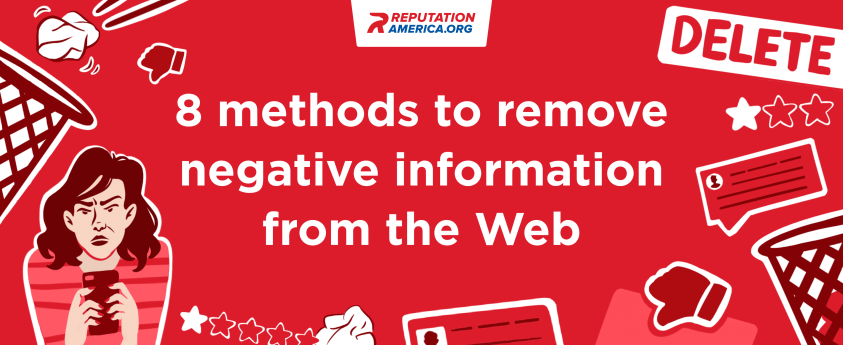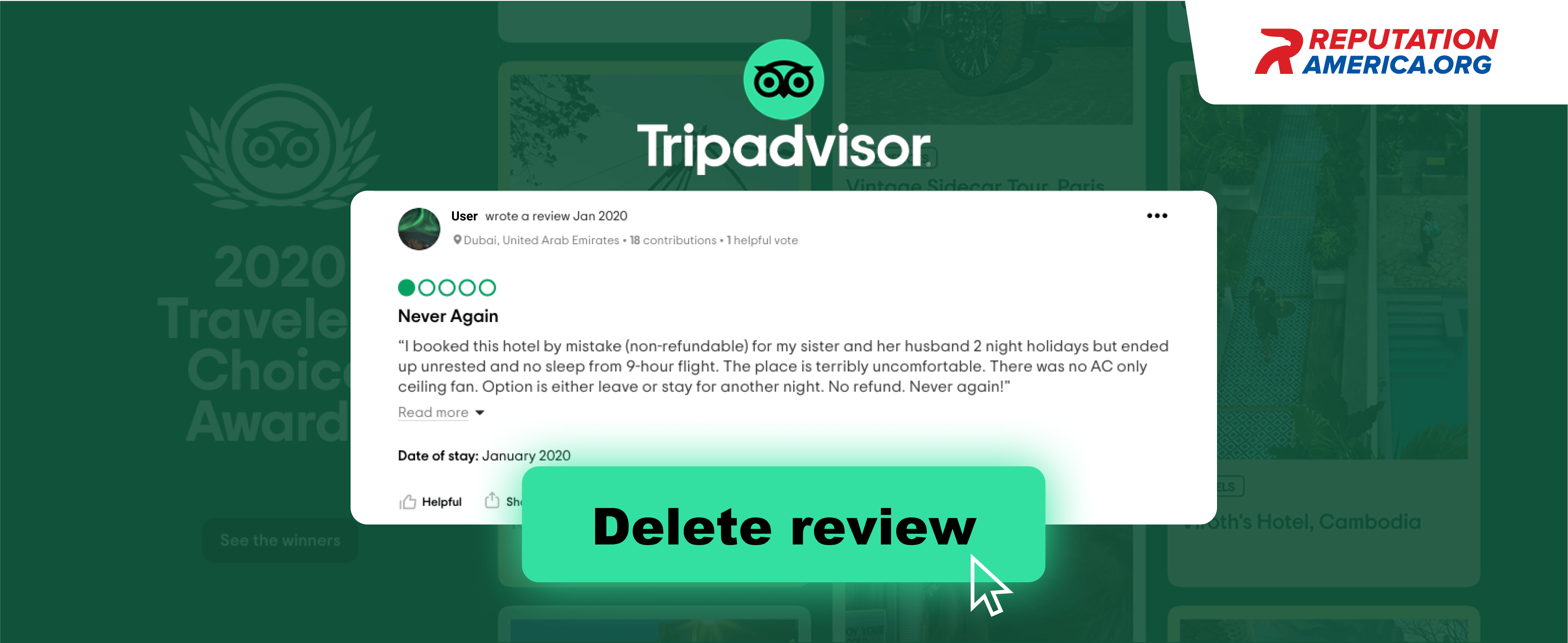Be Your Own Hacker: 8 Methods to Remove Negative Information from the Web

What should one do when it’s not enough just to displace negative information? Here’s some advice to work with so you can prevent any negative information from falling into the wrong hands.
We won’t just teach you to neutralize negative information. There are situations where only total removal can save you. Hard slander, damaging evidence, or blackmail cannot be smothered or simply brushed aside. You end up going into litigation with a partner; the disputed amount is two million. Your waiter has gotten into a fight with a guest. A key employee has left the company and begins posting all the inside details and business-doings on a blog. What should you do?
Table of contents
Plant a person’s defense attorneys
The case: three negative reviews about Mr. N. appeared on a thematic forum.
A forum got to the first page of Google and Yandex in search queries displaying the gentleman’s full name.
We get 8-15 influence agents that help to get rid of the negative information. These are friends, relatives, employees, partners, and acquaintances of Mr. N. The influence agents fend off negative reviews and bring up complaints about slander. They contact the administrators via personal messages, saying: “Look, what they write on your forum is simply not true!”
In 10% of the cases, we involve Mr. N. himself. If the forum pays attention and cares about its reputation, for around 80% of the cases, the administrators will delete the negative feedback.
A barter agreement
The case: negative information was posted on an Internet portal that needs to be removed.
It’s impossible to intimidate a portal with traffic below 3,000 visitors a day by law – it cannot be treated as electronic media. We end up writing to the portal admin and ask to remove the information. If they disagree, even when money is offered, we offer a trade: SEO-promotion or new content for the site in exchange for the information to be removed. We monitor the situation and find a specific pressure point: “Your site is ranked 20th in search query results. Would you like to be first? How about us increasing your ranking in search query results, and you delete the article?”
Usually, it results in the admin considering such a transaction. As agreed, we involve an SEO specialist and bring the site to the top. It’s a win-win for the portal, and the article ceases to exist.
Deal with copyright
The case: a negative video about an electrical products manufacturing company appeared on the Web.
The video was uploaded to a popular YouTube channel, and the content ranked 6th in a Google search.
We ended up searching for the original owner of the video, purchased the copyright, and got permission to write on his behalf. You already know how to make agreements. If this video doesn’t belong to anyone, we register the copyright on our behalf. Now, we possess rights to the content, and we can remove it from all sites on the Internet. Then, we message YouTube technical support and ask for the removal of the unwanted video.
“Closedown” and “establish” a company

The case: we need to remove all the negative feedback from Yandex.Maps
We ended up getting access to the company profile and log into the account. If we have no access or it is lost, we click “For owners” and wait for a call containing a verification code from a Yandex operator. We then get access.
This method doesn’t make it possible to delete a single review, but we can remove all the feedback. Click the “Delete company from the directory” line and select the reason (“Company closure”); now, our request is sent for approval. After that, a follow-up phone call will be made to the number specified in the directory. It’s necessary to confirm the company closure. Just don’t forget to notify your manager if he or she answers the phone.
The profile will be deleted, and the negative information will also disappear. After two or three weeks, we can create a new company account on Yandex.Maps with a unique phone number and a slightly different address or company name.
Create clones

The case: there is a lot of negative feedback on otzovik.com; therefore, it’s no use deleting single reviews.
You need to get rid of all the negative information in one go.
To do this, we create the company’s copy on the site: it is located in the same city but has a different address and name. Then, we fill up the clone with reviews. In this new profile, we include negative and neutral feedback. We let customers mention that the company’s moving to a new location in their reviews.
Then, we contact the site admin and inform them: “The company has closed down, moved, and changed its name – just check out the reviews. Please, combine the two profiles.” Thus, the comments about the real company are transferred to the fake account. The real company’s profile on the site will be closed (or there will be an empty and harmless card leftover). The probability of success for such a strategy is about 80%.
Cooperate with competitors
The case: competitors posted negative information about a company or its employees.
In this situation, there are two ways to approach this: to put pressure or persuade. Let’s start with the latter and try to convince the competitor that it’s worth playing on equal terms: improve the quality of the goods and services instead of increasing dirty tactics. It’s a common case when honest and successful companies focus on internal development instead of smear pieces.
If the competitor dishonest, then there’s a 99.9% chance that we will find damaging evidence on them. How will we act?
Badly: we require deleting the unwanted comment; otherwise, we’ll bring their negative information to the top of search results.
Well: we suggest deleting the negative information about their company and ask for a service in return.
The case: in a regional electronic newspaper, a negative article about a company or a person appeared.
Finding a breach even in a sizeable federal media is possible.
First of all, we should contact the publication’s author. Journalists are different: for one, it is enough to call and provide evidence that the information is unreliable; another will ask to pay for the removal.
If the author doesn’t have the authority to delete the article, then, we should contact the editor, director of the newspaper owner. Journalists are people as well – you can invite them to a sauna or a bar. In 60% of cases, the article will be deleted outside of court.
A competent negotiator will achieve the desired result smoothly. No one wants to spend three months to a year of their life on documents, red tape, and legal proceedings.
This method doesn’t work with 10-15 of the largest Russian newspapers—for example, Novaya Gazeta or Vedomosti.
Draw over to our side

The case: a group of cynical activists keeps attacking the “N” company and writing negative comments on a regular basis.
Plant an influence agent in the group. When the negative activists empower him or her, the agent gradually begins to turn the team’s attention to another company. “Of course, the company “N” has done it wrong but the main evil in the world are those guys!” We distract the negative activists with another form of bait. Information about the “N” company becomes irrelevant and, therefore, uninteresting. The conversation fizzles out gradually, and the influence agent persuades the team to remove unnecessary information.
All in all, going over everything again. Remember that not all negative information can be smoothed or obscured by positive feedback. Of course, you can wait for publicity and then start neutralizing it until you are blue in the face. Or you can proactively destroy negative information from gathering momentum. The choice is yours – we only offer the methods.
Still have questions?
It’s free, confidential, and without obligation







Debra
31.10.2018Hm...the article is interesting but I don't fully agree with the first way. There's no need to attract friends, family and other acquaintances to this problem. A certain number of people would be enough, if they applied to the site or forum admins and asked to remove n… Hm...the article is interesting but I don't fully agree with the first way. There's no need to attract friends, family and other acquaintances to this problem. A certain number of people would be enough, if they applied to the site or forum admins and asked to remove negative information from the Web, if it's fake.
McFly
31.10.2018I diubt that they remove something without proof. Provide the site admins at least some photos (bills, receipts, photo from the scene) in order to take a decision to delete fake information or ban the user.
Rachel S.
31.10.2018I think you need first to deal with an author of such an article or a comment. Anyway, if a person is pliant and you want to solve the problem, building a dialogue won't be defficult: you can offer options of fixing the situation, for example.
Janet Jackson
1.11.2018One should do his or her best to prevent negative reviews in the Internet. Because they can cause lots of problems. I try to resolve the issues in a peaceful way by communicating with clients and finding out the reasons of their complaints. Unfortunately, it becomes mo… One should do his or her best to prevent negative reviews in the Internet. Because they can cause lots of problems. I try to resolve the issues in a peaceful way by communicating with clients and finding out the reasons of their complaints. Unfortunately, it becomes more and more difficult...
Rachel S.
1.11.2018Yep, tell it to large companies like airlines or something like that. I guess they should have their own PR-group of a rapid response. And knowing how to remove negative information isn't enough, especially if a company is internation and works all ober the world
Sherri
3.12.2018Thank you for the article! The company where I'm working is now in the situation described. A week ago we found a video with a negtive review about our production. The situation is awful because people believe this video, as a result - we're losing clients. I guess app… Thank you for the article! The company where I'm working is now in the situation described. A week ago we found a video with a negtive review about our production. The situation is awful because people believe this video, as a result - we're losing clients. I guess applying to this company is a way out for us
Brendon
5.12.2018Maybe, you should work on the quality of your production? As far as I understand from your comment, you think that the review is fake) But it doesn't occur to you that your company can have unsatisfied clients. There's no smoke without fire, you know
Aik
13.12.2018Haha, I didn't even have to create a clone. My company is called Skyride (kites for rent), there's another company Skiride. Some authors of reviews often confuse us and many reviews for our company were addressed to Skiride) But sometimes our company gets negative revi… Haha, I didn't even have to create a clone. My company is called Skyride (kites for rent), there's another company Skiride. Some authors of reviews often confuse us and many reviews for our company were addressed to Skiride) But sometimes our company gets negative reviews for Skiride...
Tea
16.12.2018For companies who worry about their reputation it's important to apply to professionals in advertising business. They know for sure how to remove negative articles and reviews from the internet. But the company should have enough evidence to prove the fact that the rev… For companies who worry about their reputation it's important to apply to professionals in advertising business. They know for sure how to remove negative articles and reviews from the internet. But the company should have enough evidence to prove the fact that the reviews are fake
Elmer
17.12.2018I had to apply to such a company. But my problem was solved in a different way, they couldn't remove all the reviews so we just replaced the rest of the negative by the positive comments
Gordon
21.12.2018I agree that it's important to work with competitors and look for their weak points because constant applying to such companies each time the negative appears is just a waste of time and money.
Robin
23.12.2018We used one of these ways and it really worked. A client gave my car wash a negative review because the cleaner had insulted him. Our manager contacted the client, apologized and offered a coupon for free washing. The client removed his review)